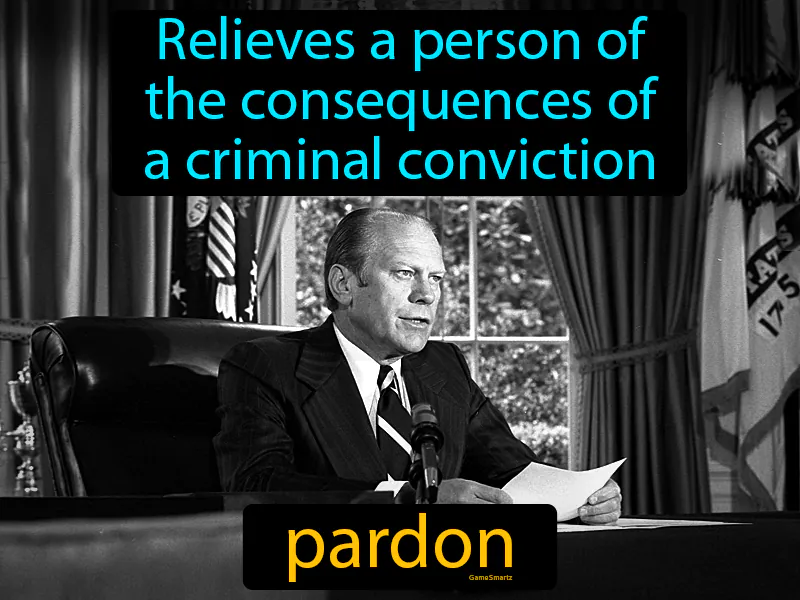Pardon
Pardon: Easy to understand
During the period known as A Crisis in Confidence from 1968 to 1980, the concept of a pardon became especially significant with President Gerald Ford's 1974 pardon of former President Richard Nixon. Nixon had resigned due to the Watergate scandal, and Ford pardoned him to help the nation heal and move past the political turmoil. This decision was controversial because some people believed it let Nixon avoid accountability, while others thought it was necessary for the country to focus on more pressing issues. Today, pardons remain important as they can offer a second chance to individuals who have been convicted of crimes, allowing them to reintegrate into society more easily. For example, if someone is pardoned for a crime they committed in their youth, it can help them secure a job and contribute positively to their community, demonstrating the ongoing impact and relevance of pardons in everyday life.

Practice Version

Pardon: Relieves a person of the consequences of a criminal conviction. Pardon. In History, a pardon is an official act by which a government leader forgives someone for their crime, erasing the penalties.